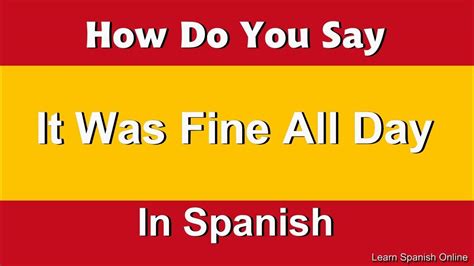In many cultures, responding to "how are you?" with a simple "I'm fine" can come across as insincere or unengaging. In Spanish, there are several ways to express that you're doing well without using the same old phrase every time.
Here are five alternative ways to say "I'm fine" in Spanish, each with its own nuance and level of formality:
1. Estoy bien
This is a more formal way to say "I'm fine." It's suitable for most situations, especially when speaking with someone you don't know well or in a professional setting.

Example sentence:
¿Cómo estás? (How are you?) Estoy bien, gracias. (I'm fine, thank you.)
2. Estoy genial
This phrase is more informal and can be translated to "I'm great" or "I'm fantastic." Use it with friends or people you're familiar with.

Example sentence:
¿Qué tal te va? (How's it going?) Estoy genial, gracias. (I'm great, thanks.)
3. Me va bien
This phrase is a bit more casual and can be translated to "I'm doing all right" or "I'm getting by." Use it in informal settings or with people you're comfortable with.

Example sentence:
¿Qué tal estás? (How are you?) Me va bien, gracias. (I'm doing all right, thanks.)
4. Estoy de maravilla
This phrase is more formal and can be translated to "I'm wonderful" or "I'm marvelous." Use it in formal situations or when you want to express your enthusiasm.

Example sentence:
¿Cómo te encuentras? (How do you feel?) Estoy de maravilla, gracias. (I'm wonderful, thanks.)
5. Todo bien
This phrase is more casual and can be translated to "All good" or "Everything's fine." Use it in informal settings or with people you're familiar with.

Example sentence:
¿Qué tal vas? (How's it going?) Todo bien, gracias. (All good, thanks.)






We hope this article has helped you learn alternative ways to say "I'm fine" in Spanish. Remember to practice your conversation skills regularly to become more confident and proficient in your ability to communicate in Spanish.
What are some common ways to respond to "¿Cómo estás?" in Spanish?
+Some common ways to respond to "¿Cómo estás?" in Spanish include "Estoy bien," "Estoy genial," "Me va bien," "Estoy de maravilla," and "Todo bien."
How can I improve my Spanish conversation skills?
+You can improve your Spanish conversation skills by practicing regularly, using language learning apps, watching Spanish movies or TV shows, and speaking with native speakers.
What are some benefits of learning Spanish?
+Some benefits of learning Spanish include improved job prospects, increased travel opportunities, and enhanced cultural understanding.
We hope you found this article helpful! If you have any more questions or would like to practice your Spanish conversation skills, please leave a comment below.
